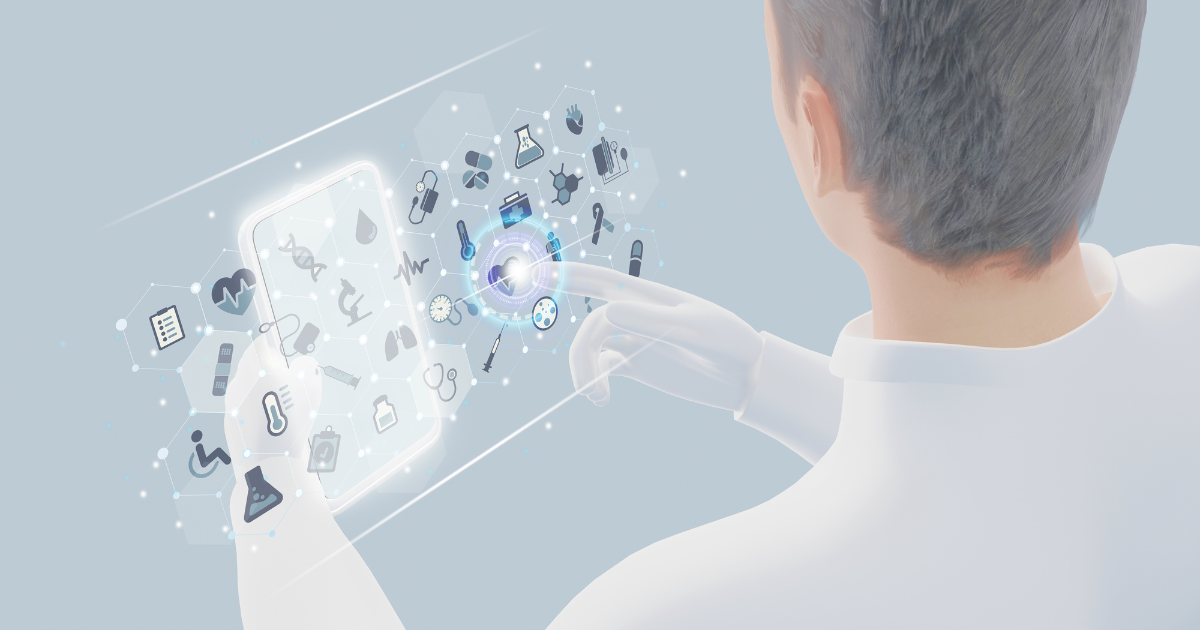Artificial Intelligence (AI) has made remarkable strides in transforming various industries, but perhaps one of its most promising and impactful applications lies in healthcare. With the ability to process vast amounts of data, make predictions, and assist medical professionals in diagnosing and treating patients, AI is revolutionizing the way healthcare is delivered. In this article, we’ll delve into the significant impact of AI on the healthcare industry.
1. Diagnostics and Early Disease Detection
One of the most notable contributions of AI in healthcare is its ability to aid in diagnostics. AI algorithms can analyze medical images, such as X-rays, MRIs, and CT scans, with incredible accuracy. For instance, Google’s DeepMind developed an AI system that can identify eye diseases like diabetic retinopathy and macular degeneration with a high degree of accuracy. These systems not only reduce the burden on radiologists and physicians but also lead to earlier disease detection, increasing the chances of successful treatment.
More
2. Predictive Analytics and Preventive Care
AI can analyze patient data to predict health outcomes and recommend preventive measures. By monitoring a patient’s historical health data and lifestyle, AI can identify those at risk for specific conditions and suggest interventions. This proactive approach to healthcare not only saves lives but also reduces healthcare costs in the long run.
More
3. Drug Discovery and Development
The process of drug discovery is time-consuming and expensive. AI, through its ability to analyze massive datasets and simulate chemical interactions, has accelerated the drug development process. Pharmaceutical companies are increasingly using AI to identify potential drug candidates, predict their efficacy, and reduce the time required to bring new drugs to market.
More
4. Personalized Medicine
One size does not fit all in healthcare. AI can analyze an individual’s genetic makeup, medical history, and lifestyle to create personalized treatment plans. This approach ensures that patients receive treatments that are tailored to their unique needs, optimizing effectiveness and minimizing side effects.
More
- The Role of Artificial Intelligence in Personalized Medicine
- Personalized Medicine: What’s in it for Pharma?
5. Administrative Efficiency
AI-powered chatbots and virtual assistants are revolutionizing healthcare administration. They can handle appointment scheduling, billing inquiries, and other routine tasks, freeing up administrative staff to focus on more critical responsibilities. This not only reduces costs but also enhances the patient experience.
More
6. Telemedicine and Remote Monitoring
Especially relevant in light of recent global events, AI plays a pivotal role in enabling telemedicine. AI-driven remote monitoring systems can keep track of a patient’s vital signs, alerting healthcare providers to any concerning changes. This technology allows patients to receive care from the comfort of their homes while maintaining a strong connection to their healthcare providers.
More
7. Robot-Assisted Surgery
AI has also found its way into the operating room. Robot-assisted surgery systems, like the da Vinci Surgical System, allow surgeons to perform minimally invasive procedures with greater precision. AI enables real-time feedback and enhances the surgeon’s capabilities, resulting in quicker recovery times for patients.
More
8. Ethical and Regulatory Challenges
While the benefits of AI in healthcare are substantial, they come with their fair share of ethical and regulatory challenges. Ensuring patient data privacy, maintaining transparency in AI algorithms, and addressing biases in AI are critical issues that the healthcare industry must tackle.
More
- Ethical Considerations in AI Healthcare Applications
- AI in Healthcare: Addressing the Ethical Concerns
Conclusion
The impact of artificial intelligence on healthcare is undeniable and continues to evolve. With the potential to improve diagnostics, treatment, and the overall patient experience, AI has the power to revolutionize the healthcare industry. However, it is essential for healthcare providers, policymakers, and technology developers to collaborate in a way that harnesses the potential of AI while addressing the ethical and regulatory challenges that come with it. As AI in healthcare continues to advance, we can expect a future where medical care is more efficient, effective, and patient-centric.
In conclusion, the integration of AI into healthcare is not a question of if, but when and how. The healthcare industry is on the cusp of a technological transformation that has the potential to save lives and improve the well-being of patients around the world.





Leave a Reply